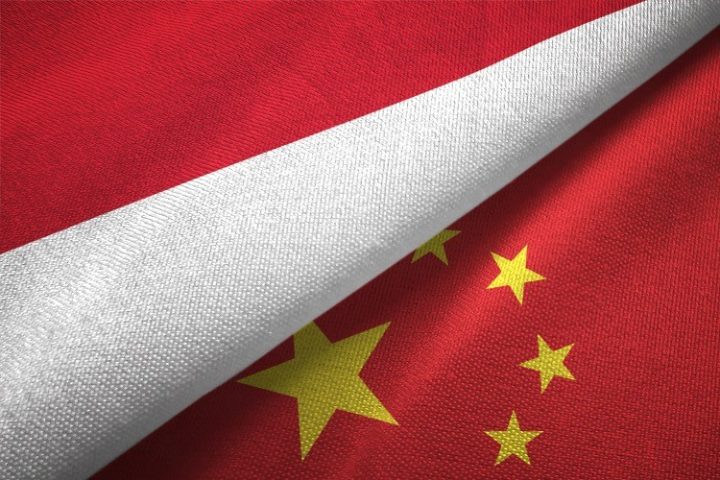
SINGAPORE — Indonesia has sent a warship to its North Natuna Sea to keep tabs on a Chinese Coast Guard vessel that has been active in a resource-rich maritime area that both countries claim as their own, the country’s naval chief declared on January 14.
Ship-monitoring data depicted the Chinese vessel, CCG 5901, sailing in the Natuna Sea, especially near the Tuna Bloc gas field and the Vietnamese Chim Sao oil and gas field since December 30, the Indonesian Ocean Justice Initiative revealed to Reuters.
Thus, a warship, a maritime patrol plane, and a drone had been sent to observe the vessel, Laksamana Muhammad Ali, the chief of the Indonesian Navy, said.
“The Chinese vessel has not conducted any suspicious activities,” he said. “However, we need to monitor it as it has been in Indonesia’s exclusive economic zone (EEZ) for some time.”
A spokesperson for the Chinese embassy in Jakarta was not immediately available for comment.
The United Nations Convention on the Law of the Sea (UNCLOS) offers vessels navigation rights through an EEZ.
The Chinese vessel activity came after an EEZ agreement between Indonesia and Vietnam, and authorization from Indonesia to develop the Tuna gas field in the Natuna Sea, with a total estimated investment exceeding US$3 billion.
This is not the first time Indonesia and China have faced off in disputed waters. In 2021, vessels from both countries trailed each other for months near a submersible oil rig that had been conducting well appraisals in the Tuna block.
Back then, China told Indonesia to stop drilling, claiming that the activities were happening in its territory.
Indonesia says that under UNCLOS, the southern end of the South China Sea is its EEZ.
China dismissed the Indonesian view, stating the maritime area is within its expansive territorial claim in the South China Sea indicated by a U-shaped “nine-dash line.” Yet the Permanent Court of Arbitration in the Hague ruled in 2016 that this “nine-dash line” had no legal grounds.
Nonetheless, in the hotly contested South China Sea, Indonesia is not unique in its experience. Although Indonesia is not a claimant state in the dispute, China has been regarding Jakarta much as its neighbors regarding claims in the vicinity.
For instance, China has been using maritime gray-zone tactics, or bilateral competitive acts between states short of all-out warfare, against Indonesia. China has been mobilizing its fishing vessels, to the accompaniment of its coast guard and maritime militia, the North Natuna Sea.
Past years have witnessed various public crises over China’s illegal fishing activities in the area, with the most recent incidents occurring between December 2019 and January 2020. Interviews with Indonesia’s maritime law-enforcement officials also indicate that China’s incursions have never really ceased, but have only become less publicized.
A Chinese survey vessel spent seven weeks from August to October, 2021 conducting intensive seabed mapping inside Indonesia’s EEZ, south of the Harbour Energy Tuna Block concession. Jakarta has kept comparatively silent about the matter, even though up to nine Indonesian Navy and Coast Guard (Bakamla) patrol craft were standing by and monitoring the Chinese, supposedly with instructions not to intervene. A Reuters report from December 2021 also hinted that China basically crossed Indonesia’s “red line” by insisting that Indonesia halt its drilling activities in the area.
Observers have contended that China has been emboldened to pursue certain aims knowing that Indonesia would not adequately respond to its actions.
Also, China perceives that it has “overlapping maritime rights” with Indonesia based on its interpretation of their “informal understanding” reached in the 1990s.
Arguably, China’s activities are also less about legal contestation and more about a gradual strategic attempt to pressure Jakarta to eventually or indirectly admit China’s rights. With control over major strategic areas in the South China Sea, China feels empowered to push more of Jakarta’s buttons.
On Indonesia’s side, the country has generally displayed a publicly muted diplomatic response, even if officials assert that they have conveyed Indonesia’s strong “rejection” to China privately. Its haphazard and inconsistent military response, coupled with a lack of a strong economic or political retaliation, have only reflected the lack of coherent policy on this matter.
Indonesian policymakers have been divided on how to deal with China’s maritime activities. Some think the aim of getting China to renounce its “nine-dash line” map is impossible, while others support crisis resolution instead of prevention.
Consequently, instead of trying to stop China’s incursions into the North Natuna Sea, Indonesian policymakers have settled for a general response just enough to alleviate any possible tensions. Superficial responses such as organizing a Cabinet meeting aboard a warship have been used to tell citizens that the government is doing something to “strongly” assert the country’s sovereignty.
Policymakers also reiterate that Indonesia, unlike the other South China Sea claimants, does not stake a claim in the disputes. They do not wish to sacrifice the country’s strong bilateral relationship with China for what they perceive as minor Chinese gray-zone incursions.
Instead, Jakarta tends to view these incursions as maritime law-enforcement problems and not as a broader strategic power push by China.
Policymakers have thus separated the country’s bilateral ties with China from the North Natuna Sea issue, the South China Sea disputes, and regional power politics. President Joko Widodo’s administration has been susceptible to domestic criticisms over its close economic relations with China in recent years.
Admittedly, there are several options that Jakarta policymakers have not properly considered, such as projects encompassing multilateral maritime alliances, or evaluating China’s Belt and Road Initiative (BRI) projects in Indonesia. However, if Widodo is not proactive in spearheading a broader strategic policy, each policymaking actor — from the Navy and Coast Guard to the Foreign Ministry — will craft its own response that is different and disjointed from those of the others.



